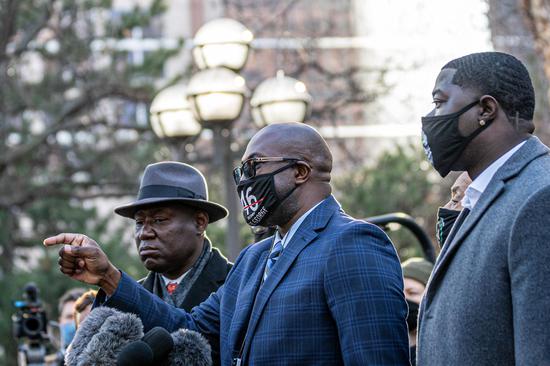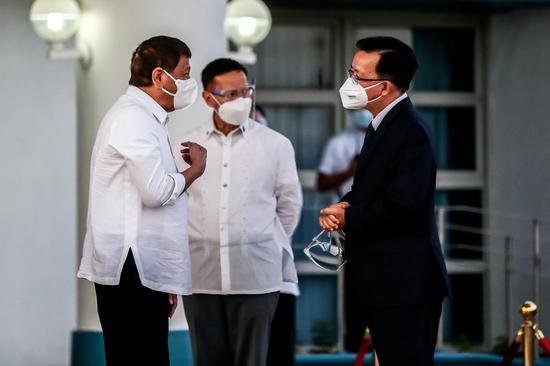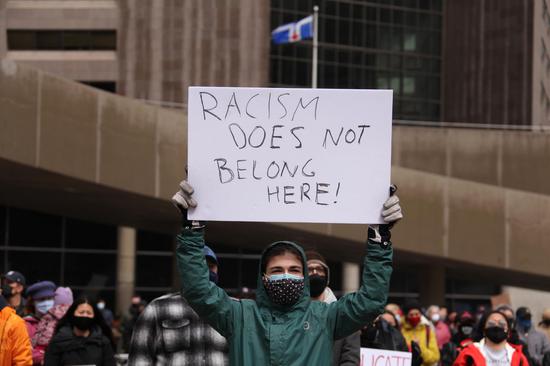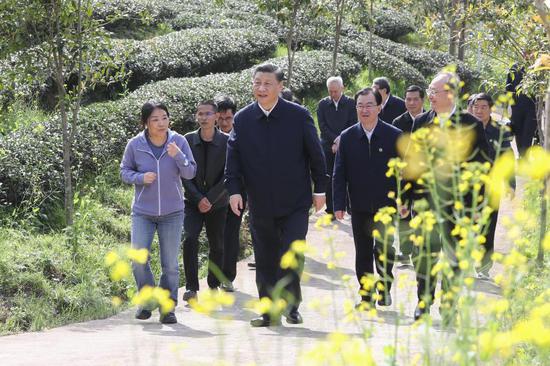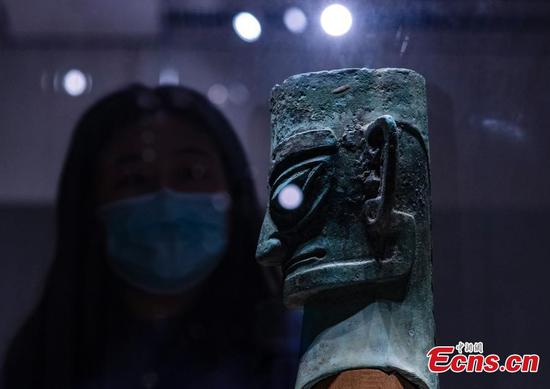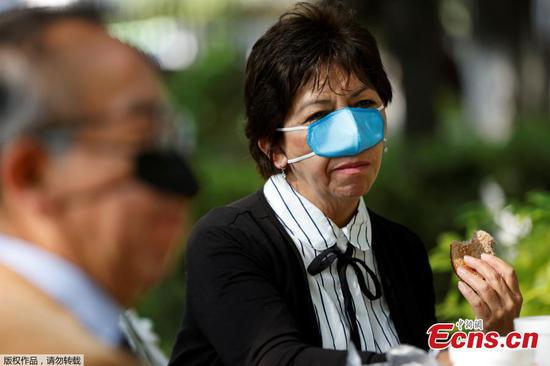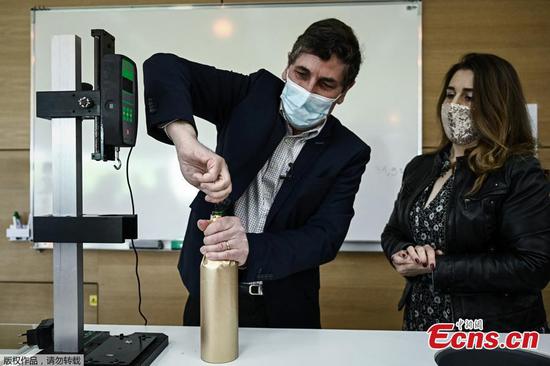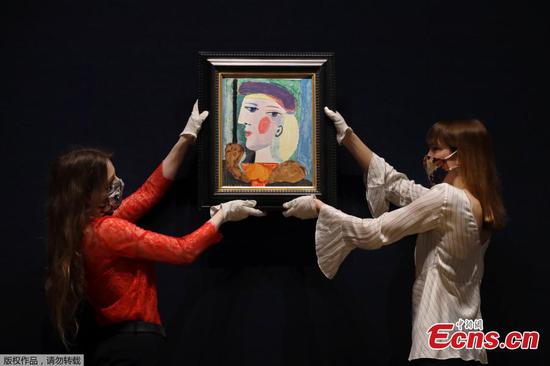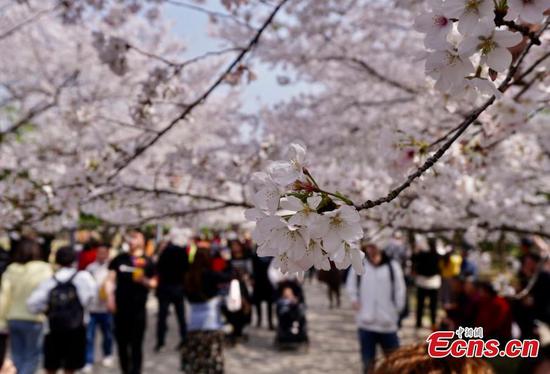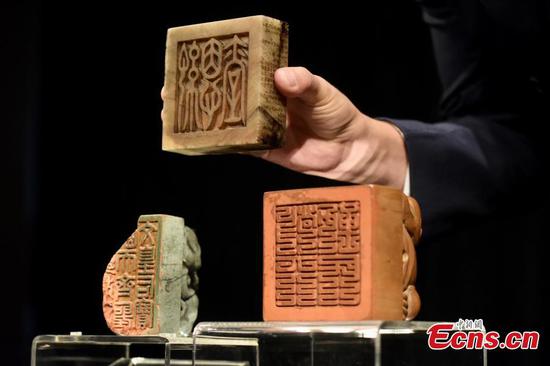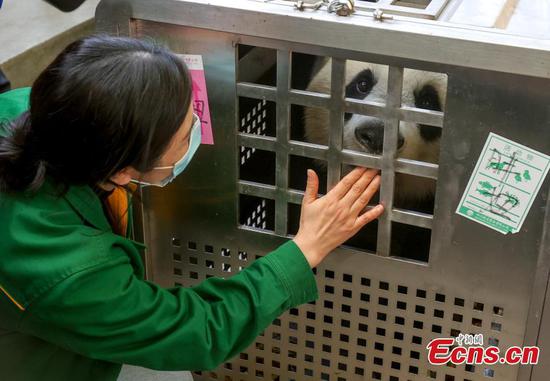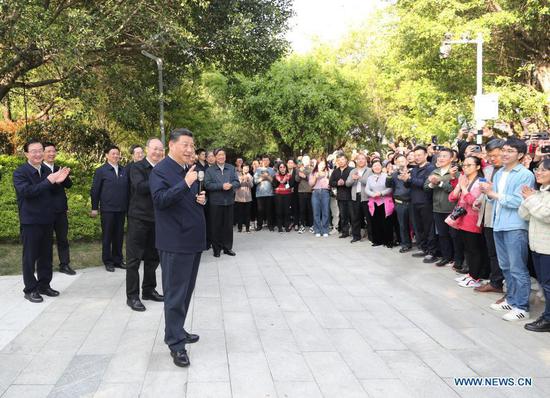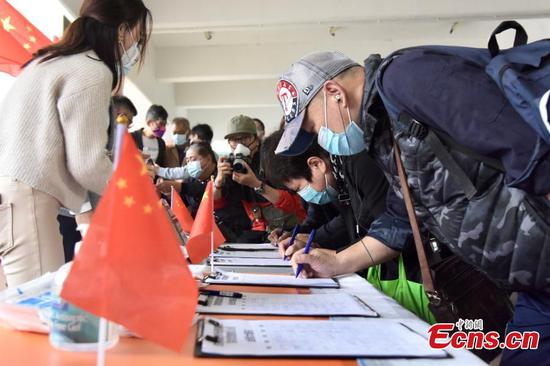
Citizens sign in support of the "patriots administering Hong Kong" principle and improving the electoral system in the Hong Kong Special Administrative Region in the Sha Tin Station, March 7, 2021. (Photo/China News Service)
In a bid to ensure Hong Kong is administered by patriots, China's top legislature passed a decision earlier this month on improving its electoral system.
The improvement, analysts say, helps plug the loopholes and cure the defects of the existing electoral system, paving the way for Hong Kong's long-term prosperity and stability as well as the implementation of "one country, two systems".
As a move to safeguard steady development and people's interests, expelling insurgents and separatists from the government to ensure a place is being administered only by people who love it is a common practice for almost all countries around the world.
Patriotism is what any country would expect of its public servants. Western countries are no exception, even though some of them have been hurling accusations against China for implementing the "patriots administering Hong Kong" principle.
Here are some facts about how those China-bashing countries apply the same "patriots-administering" principle to safeguard their own national security.
The United States
・ Patriotism is a criterion for all public officials in the US, which explicitly prohibits people from holding public office if they have violated their duty of loyalty. The law of the US clearly defines the basic obligation of public service, and the first of its general principles is to pledge loyalty to the US Constitution and laws.
・ According to the "negative list "of the US law, anyone shall not be allowed to serve in the US government if he/she advocates the overthrow of the constitutional form of government, or participates in a strike against the US government, or participates in an organization that engages in such activities. Employees in the US government are required by law to execute an affidavit confirming that they do not have any of the above conditions. Those who make false statements will be subject to criminal penalties. The US Constitution and criminal law also clearly stipulate that people who commit crimes such as rioting and treason shall be incapable of holding any office in the US.
・ Both the House of Representatives and the Senate of the US Congress have independent ethics committees, which are responsible for monitoring and investigating whether members of Congress have committed acts of disloyalty to the US. In US history, 18 members of Congress have been expelled for disloyalty to the country.
・ Under Article VI of the US Constitution, members of the US Congress and all executive and judicial officers of the government and states shall be bound by oath or affirmation to support the Constitution. US law further specifies that all persons holding public office must take an oath. Taking an oath without solemnity could not only be deemed as refusing to take the oath, but also cause serious consequences.
・ The US has a large number of electoral laws. In the past two years, members of Congress have introduced more than 40 bills to improve the electoral system. On the same day that China's top legislature announced its agenda for improving Hong Kong's electoral system, the US House of Representatives passed a "For the People Act" to improve the electoral system and ensure election security.
・ The US federal government is in charge of the improvements of the country's electoral system. With specific election rules, it ensures that only the "patriots" can be elected. In terms of eligibility, people who violate their duties of loyalty are explicitly prohibited from running for office, or they shall be subject to criminal penalties. Its electoral system also limits foreign influence on candidates during the election process. For example, the Federal Election Campaign Act explicitly prohibits foreign nationals from providing financial support to any political election in any form, and the Foreign Agent Registration Act stipulates that foreign agents must identify themselves when communicating with candidates.
・ Apart from the official election rules, the election culture based on patriotism also forms the "game rules" which candidates must abide by. In order to win the support of voters, candidates on different sides must go to all lengths to display their patriotism in the campaign, as the public typically hold high expectations and strict requirements for a candidate's patriotism.











